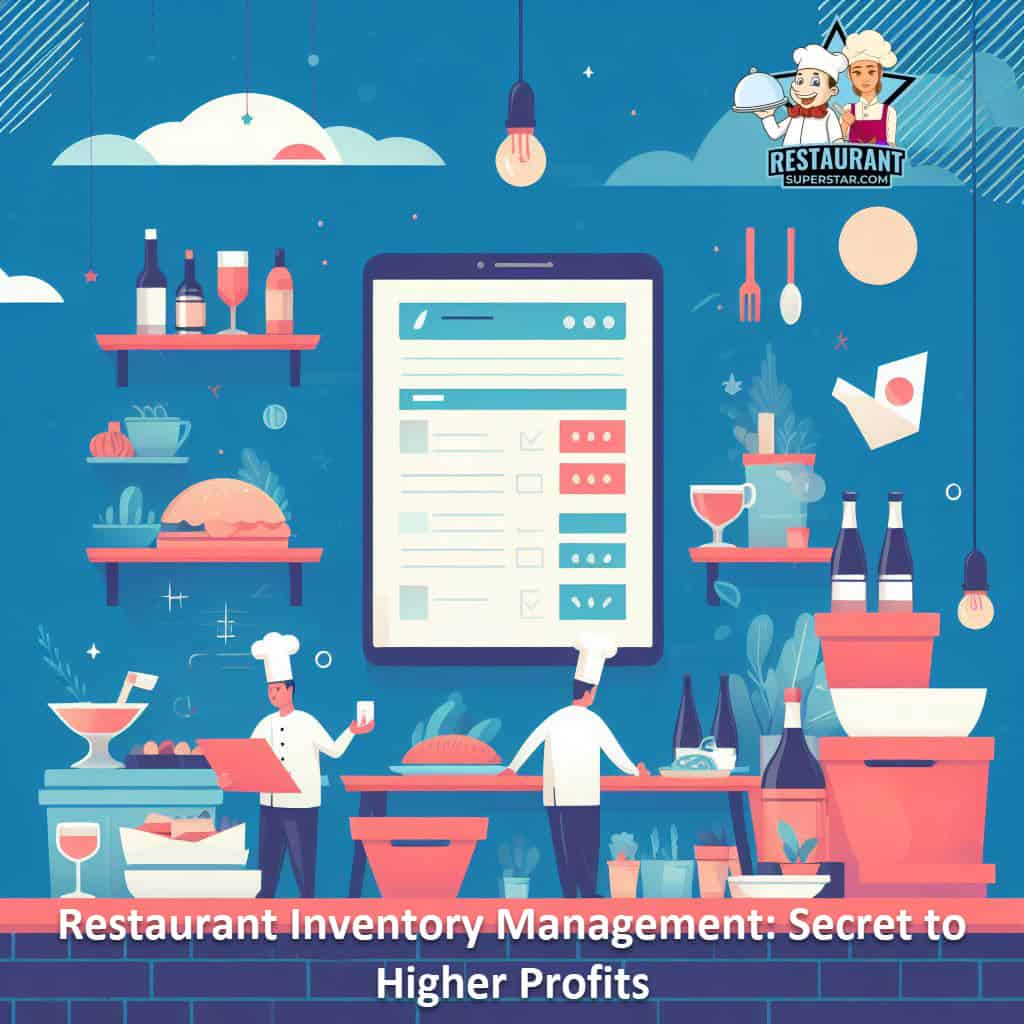Top 10 Tips for First Time Restaurant Managers
Hey There,
Jeff here, coming to you straight from the heart of sunny Florida.
Over the years, I’ve enjoyed consulting for countless restaurants, from cozy little diners to bustling city eateries.
And let me tell you, the journey of a restaurant manager is nothing short of exhilarating.
Essential Tips for the First Time Restaurant Manager
Tips for the First Time Restaurant Manager? Know your crew and eatery like your favorite dish. Organize like a pro – think of your place as a jigsaw, and you’ve got the pieces. Chat, connect and captivate through communication. Face any hiccup head-on with swift solutions. Treat every customer like royalty. Be the lively heart of your restaurant, always in the mix. Set goals, give feedback, and trust your team to shine. And never stop learning – the food world spins fast.
First, a big, hearty congratulations on stepping into the thrilling world of restaurant management! It’s both an exhilarating and challenging ride. But worry not, I’ve got your back.
I bet you think, “That’s a neat summary, Jeff, but I’m hungry for more!” Well, lucky for you, this article is packed with all the juicy details.
Let’s uncover the secrets to being a top-notch restaurant manager.
Essential Tips for the First Time Restaurant Manager– Step by Step Guide
1 – Building a Strong Foundation
Think of it as the base of a delicious key lime pie, a Florida favorite. Without a solid crust, the pie doesn’t hold together, right? Similarly, a strong foundation sets the stage for success in the bustling world of restaurants.
So, where to begin?
2 – Get to Know Your Team and Restaurant
First and foremost, your team. These are the folks you’ll be spending countless hours with, navigating the highs and lows of the restaurant biz. It’s essential to know more than just their names.
- Tapping into Employee Strengths & Weaknesses: Every dish has its unique flavor, but every team member brings something different. Jane from the bar has a knack for whipping up creative cocktails, while Mike from the kitchen has a meticulous eye for detail but struggles with time management. Recognizing these strengths and areas for improvement not only helps in delegating tasks effectively but also in fostering personal growth and team cohesion.
- Dive Deep into Your Restaurant: Now, onto the restaurant itself. It’s more than knowing where the emergency exit is or which table wobbles. Dive deep! Familiarize yourself with the menu – perhaps even try every dish (a delicious task, I must say). Understand the kitchen’s flow, the front-of-house rhythm, and the nuances of daily operations. It’s like getting to know a new dance partner; you glide seamlessly across the floor once you’re in sync.
Staying closely connected with your team and the workspace is crucial, as it will prepare you to deal with any unexpected situations.
In the restaurant industry, these situations are pretty common, so it is essential to be well-prepared.
Therefore, prepare to face any challenges by immersing yourself in the work and establishing a solid foundation.
3 – Essential Skills for Success

Let’s discuss the essential skills you’ll need in this culinary adventure. I’ve noticed a pattern over my years in sunny Florida, helping restaurants reach their potential.
The most successful managers?
They’ve got a toolkit of skills that they’ve honed to perfection. Let’s dive into some of these:
Organizational Skills: Ah, the backbone of any great manager.
- Prioritizing Tasks: Picture this – it’s a Saturday evening, the restaurant’s buzzing, three large parties just walked in, and you’ve got an unexpected delivery at the back door. Where do you start? Prioritizing tasks is the key. Understand which tasks require urgent attention and which can be put on hold for a while. I will also check for any possible spelling, grammar, and punctuation errors in the text.
- Multitasking: It’s like juggling – once you get the hang of it, it’s a breeze. You might be taking a reservation on the phone while guiding the new waiter on table arrangements. It’s all in a day’s work!
- Managing Inventory: There’s nothing worse than running out of the special ingredient for your star dish on a busy night. Regular inventory checks and smart ordering can save the day.
Communication Skills: In the words of a famous saying in the South, “It ain’t what you say, it’s how you say it.”
- Clarity in Instructions: Be it explaining the night’s specials to the staff or discussing a new promotion, clarity is key. Avoid those “I thought you meant…” scenarios.
- Respectful Dialogue: Always communicate with respect. Whether it’s with the sous chef or the janitor, every team member deserves respect.
- Effective Listening: Sometimes, the best thing you can do is listen. Be it feedback, concerns, or daily banter – lend an ear.
Problem-solving Skills: The restaurant world is unpredictable. The freezer might break down, or there might be a mix-up with reservations. How you handle it makes all the difference.
- Thinking on the Spot: Quick thinking can save the day. Adapt, improvise, and overcome.
- Creative Solutions: Think outside the box. You could turn that reservation mix-up into an opportunity for a memorable experience for both parties.
- Staying Calm Under Pressure: When the heat’s turned up (both in the kitchen and metaphorically), keep your cool. A calm leader instills confidence in the team.
Remember, mastering these skills is a journey, not a destination. Every day in the restaurant world offers new learning opportunities.
So, embrace them, grow with them, and make your restaurant the talk of the town.
4 – Empowerment and Autonomy
Now, let’s chat about something that can genuinely transform how your restaurant operates: empowerment.
Remember when you were free to take charge, make decisions, and own a task?
It felt good, right?
That’s the power of empowerment and autonomy.
- Delegating Tasks: Over the years, from the lively eateries of Tampa to the quaint cafes of St. Augustine, I’ve noticed a common trait among successful managers: they know when to step back. Delegating isn’t just about offloading tasks; it’s about trusting your team. It could be letting your sous chef experiment with the specials for the week or allowing your lead server to handle a tricky customer situation. When you delegate, you clearly say, “I trust you.” And trust, my friends, is a powerful motivator.
- Allowing Employees to Make Decisions: This might sound risky, but bear with me. Imagine a scenario where a customer has a special request, something not on the menu. Instead of running to the manager, what if the server could make a call in consultation with the chef? It speeds up the process, delights the customer, and gives the employee a sense of responsibility. Of course, this comes with training and clear guidelines, but allowing decision-making autonomy can work wonders.
You’re improving efficiency and building leaders by fostering a sense of ownership.
Leaders who take pride in their work, who feel valued, and who, in turn, value the restaurant and its patrons.
In the end, empowerment and autonomy boil down to trust and growth. Trusting your team to rise to the occasion and providing opportunities to grow, learn, and shine.
Let’s take a leap of faith, shall we?
Hand over the reins every once in a while, and watch your team soar.
5 – Putting Customers First
Now, onto one of my favorite topics! If there’s one thing I’ve learned from the vibrant streets of Florida’s bustling food scene, it’s this: restaurants come and go, but memories last forever. And guess who creates those memories? That’s right, your customers.
So, let’s chat about putting them front and center.
The Importance of Being Customer-Focused
- Ensuring Positive Guest Experiences from Entrance to Exit: Think of your restaurant as a theater; every night is a new show. Guests should be enveloped in a memorable experience from the moment they enter. It’s not just about the food; it’s the ambiance, the service, the music, and the lighting. Every detail counts. Remember when you felt special at a place, even if you just popped in for a coffee? That’s the magic we’re aiming for.
- Handling Customer Complaints Gracefully: Alright, let’s face it – no matter how hard we try, things can go awry. Maybe the steak was overcooked, or perhaps the music was too loud. When complaints come in, they will handle them with grace. Listen, empathize, and resolve. Sometimes, a simple apology and a genuine effort to fix the issue can turn a disgruntled guest into a loyal patron. Some of my best restaurant buddies started as customers with feedback today!
In the end, it’s all about the memories you create.
A customer-focused approach ensures that your restaurant is in their cherished tales when folks talk about their favorite dining spots.
So, let’s roll out the red carpet for them and make every visit a standing ovation-worthy performance.
6 – The Essence of Visibility

Let me paint a picture for you. Imagine you’re sipping on a cool mojito at a beachside eatery in Florida.
The owner strolls by, stops at your table, and chats about the day’s fresh catch or shares a fun anecdote about the vintage surfboard hanging on the wall.
Feels good, right?
Makes you feel connected, valued, and part of the story. That’s the magic of visibility.
- Being Present in the Restaurant Space: Don’t be that mysterious owner or manager who’s always “in the back office.” Be out there among the hustle and bustle. Walk the floor, check in on the kitchen, and even jump in to help during those peak rush hours. Your team will appreciate the support, which sets a great example of hands-on leadership.
- Interacting with Guests: This doesn’t mean you hover around tables, but a simple “How’s everything tonight?” or a “Hope you enjoyed the special!” can make a difference. Share stories, give recommendations, and spill the beans on that secret ingredient in the house sauce (or not!). Personal touches like these make guests feel seen and heard.
- Ensuring Guests Feel Valued: At the end of the day, every guest wants to feel valued. Whether remembering a regular’s favorite dish, celebrating a diner’s special occasion, or simply greeting guests with genuine warmth and enthusiasm – these gestures weave the fabric of a memorable dining experience.
In our digital age, where everything’s online, and interactions are often limited to likes and comments, genuine human connection stands out.
Being visible, present, and genuinely interacting with guests can turn a one-time visitor into a lifelong patron.
So, my fellow restaurant managers, let’s step into the limelight and make every guest’s experience a showstopper.
7 – Leading a Cohesive Team
Let’s shift gears and talk about the folks who make the magic happen behind the scenes: your team.
From the chefs wielding culinary magic in the kitchen to the servers who dance between tables with grace and charm, they’re the backbone of your restaurant. And leading such a diverse and dynamic group? Well, it’s an art in itself!
Setting Clear Expectations
- Defining Job Roles: Just like every ingredient in a dish has its purpose, every team member has a specific role. The sous chef, hostess, and bartender have unique responsibilities. Make sure everyone knows their part in the grand performance. It’s like giving each musician in an orchestra their sheet music. When everyone knows their part, the symphony is in perfect harmony.
- Performance Metrics: Tracking performance is crucial in the restaurant industry. Whether it’s the number of dishes a chef can prepare in an hour or a server’s average table turnaround time, having clear metrics is essential. Apart from evaluating performance, these metrics can also help set goals and motivate the team. Even though we are all passionate about food, keeping track of numbers is important.
- Expected Behaviors: This one’s a bit more intangible but oh-so-crucial. How do you want your team to interact with each other? With guests? What’s the vibe you’re aiming for in your restaurant? It could be a laid-back, friendly atmosphere or a more formal, impeccable service style. Set the tone and ensure everyone’s on the same page.
Leading a team, especially in the ever-evolving world of restaurants, can be challenging.
But with clear expectations, open communication, and a dash of Florida-style camaraderie (throw in a BBQ or two!), you’ll have a team that’s not just working together but thriving together.
8 – Feedback and Recognition
As we begin, I’d like to discuss a subject that holds a special place in my heart. During my travels across Florida, from the lively streets of Miami to the tranquil shores of Key West, I’ve understood the significance of feedback and recognition. It’s like a secret ingredient that can transform an average team into an exceptional one.
- Praising Good Work: Imagine you’ve whipped up a new dish, and the first bite you take… it’s a burst of flavors, perfectly balanced, an absolute delight. That’s the feeling your team gets when you recognize and praise their excellent work. Acknowledging good work goes a long way, whether a shoutout during a team meeting, a handwritten note, or even a simple pat on the back. It boosts morale, motivates the team, and fosters a positive work environment.
- Constructive Criticism: On the flip side, not every day’s a smooth sail. Mistakes happen. Orders get mixed up, or a new dish mayn’t quite hit the mark. And that’s okay! What’s essential is how you handle these situations. Instead of pointing fingers, focus on what can be learned. Offer constructive feedback, not criticism. Approach it as a learning opportunity, guiding the team to improve and avoid such hiccups in the future.
When given right, feedback is like the feedback loop in a good recipe. You taste, adjust, and taste again until it’s just right.
And recognition? The cherry on top, the finishing touch, makes everything shine.
9 – Empowerment and Autonomy

Remember when you were free to take charge, make decisions, and own a task? It felt good, right? That’s the power of empowerment and autonomy.
- Delegating Tasks: Over the years, from the lively eateries of Tampa to the quaint cafes of St. Augustine, I’ve noticed a common trait among successful managers: they know when to step back. Delegating isn’t just about offloading tasks; it’s about trusting your team. It could be letting your sous chef experiment with the specials for the week or allowing your lead server to handle a tricky customer situation. When you delegate, you clearly say, “I trust you.” And trust, my friends, is a powerful motivator.
- Allowing Employees to Make Decisions: Consider a scenario where a customer makes a special request that is not on the menu. In such a case, the server can call the chef for consultation instead of referring to the manager. Though it may seem risky, this approach can improve the customer experience, accelerate service delivery, and provide a sense of responsibility to the employee. However, training and clear guidelines are necessary to ensure employees exercise their decision-making autonomy effectively.
You’re improving efficiency and building leaders by fostering a sense of ownership.
Leaders who take pride in their work, who feel valued, and who, in turn, value the restaurant and its patrons.
In the end, empowerment and autonomy boil down to trust and growth.
Trusting your team to rise to the occasion and providing opportunities to grow, learn, and shine.
Let’s take a leap of faith, shall we?
Hand over the reins every once in a while, and watch your team soar.
10 – Continuous Learning and Adaptability
Let’s switch lanes and talk about the essence of the restaurant world: evolution. From the ever-changing culinary trends to the dynamic dance of customer preferences, change remains constant in our industry.
And to navigate these waters? You’ve got to have a curious mind and adaptable spirit.
- Keeping Up with Industry Changes: Picture this: One day, avocado toast is all the rage, and the next, it’s all about fermented foods. The culinary landscape is ever-shifting, and to stay ahead, you’ve got to have your finger on the pulse. Subscribe to industry magazines, follow top chefs on social media, and stay updated. It’s not just about hopping onto every trend but discerning which ones resonate with your brand and clientele.
- Attending Relevant Workshops: Now, I’ve attended my fair share of workshops, from wine pairing sessions in Orlando to sustainable sourcing seminars in Sarasota. And every single time, I’ve walked away with newfound knowledge and insights. Workshops offer hands-on learning, a chance to deep dive into specific topics, and, most importantly, a platform to exchange ideas with peers.
- Networking: Building connections is an age-old art that should not be underestimated. Your network can be a valuable asset for you. Attending industry events, joining restaurant associations, or hosting community gatherings at your place can greatly expand your network. Networking is about finding business opportunities, learning from others’ experiences, sharing your own, and collectively pushing the envelope.
Continuous learning is your ticket to the front row in the grand theater of restaurants. It equips you to anticipate changes, adapt quickly, and innovate confidently. And adaptability? The dance complements the music, allowing you to move gracefully, no matter the tune.
11 – Challenges and Solutions
Stepping into restaurant management, especially for the first time, is akin to embarking on a deep-sea fishing adventure here in Florida.
The waters can be unpredictable, with calm seas one moment and unexpected storms the next.
But fear not! With every challenge comes a solution waiting to be uncovered.
Common Challenges
- Overwhelming Responsibilities: As the captain of the ship, a first-time manager often feels the weight of the entire restaurant on their shoulders. From overseeing daily operations to handling unexpected crises, the range of tasks can be daunting.
- Team Dynamics: Everyone brings their experiences, personalities, and quirks. Navigating team dynamics, resolving conflicts, and fostering a harmonious work environment can be a tightrope walk for new managers.
- Customer Feedback: Ah, the double-edged sword! While positive feedback can boost morale, negative comments can be disheartening. Learning to take criticism in stride without letting it dampen spirits is a challenge many first-timers face.
- Inventory and Supply Chain Hiccups: Whether it’s a delayed shipment of fresh produce or an unexpected surge in demand for a particular dish, managing inventory and ensuring smooth supply chain operations can be a juggling act.
- Keeping Up with Trends: The culinary world is dynamic, with new trends popping up faster than Florida summer storms. Staying updated and discerning which trends to adopt can be a maze for a newbie.
These challenges, while common, are by no means insurmountable. You can confidently navigate these waters with the right mindset, perseverance, and a sprinkle of guidance (like the insights I’m sharing here!).
Stay tuned as we delve deeper into solutions and strategies to tackle these challenges head-on.
Overcoming Challenges
Now that we’ve navigated the rough seas of challenges let’s chart a course toward calmer waters with some solutions.
Remember my fishing analogy from earlier? Well, every seasoned angler in Florida knows that with the right bait, technique, and patience, you can reel in the big one!
Here are some tips to tackle those common challenges:
Tackling Overwhelming Responsibilities
- Break It Down: Instead of looking at the mountain of tasks, break them down into smaller, manageable chunks. Prioritize, create to-do lists, and set realistic goals. And don’t hesitate to delegate!
- Take Breaks: It might sound counterintuitive, but short breaks boost productivity. Walking around the block, meditating, or chatting with a team member can rejuvenate your spirits.
Navigating Team Dynamics
- Open Communication: Foster an environment where team members feel comfortable sharing their thoughts and concerns. Regular team meetings, one-on-one sessions, and open-door policies can work wonders.
- Team Building Activities: Organize team outings, workshops, or game nights. Strengthening personal bonds can translate to smoother professional interactions.
Handling Customer Feedback
- Constructive Approach: Instead of getting defensive, view negative feedback as constructive criticism. It’s an opportunity to improve. Thank the customer for their input and assure them of corrective actions.
- Training Sessions: Conduct workshops for your team on handling customer feedback, both positive and negative. Equip them with the skills to manage such situations gracefully.
Managing Inventory and Supply Chain
- Tech to the Rescue: Invest in inventory management software. It can help track stock levels, predict demand, and even automate orders.
- Build Strong Vendor Relationships: Regular communication, timely payments, and mutual respect can ensure your vendors go the extra mile for you during crunch times.
Staying Updated with Trends
- Continuous Learning: Attend workshops, subscribe to culinary magazines, and follow influential chefs and food critics on social media.
- Experimentation: While being aware of trends is essential, not all might be right for your restaurant. Experiment, get customer feedback, and adapt accordingly.
In the vibrant world of restaurants, challenges are stepping stones to success. You can turn every challenge into an opportunity with a proactive approach, a dash of creativity, and the spirit of continuous learning.
Additional Tips and Resources
As we near the end of our culinary management voyage, let’s anchor down with some pearls of wisdom I’ve gathered from my years in the sunny state of Florida.
Just as every dish has its secret ingredient, every successful restaurant manager possesses certain standout qualities that set them apart.
Essential Qualities of a Successful Restaurant Manager
- Patience: The restaurant industry is fast-paced and unpredictable and can test your limits. Whether it’s a new chef finding their groove or a customer with an extensive list of dietary preferences, patience is paramount. It’s like slow-cooking a stew – give it time, and the flavors will meld beautifully.
- Resilience: Only some days will be a roaring success. There will be hiccups, unexpected challenges, and curveballs thrown your way. Resilience is about bouncing back, learning from setbacks, and forging ahead with renewed vigor.
- Leadership: Leading by example is the mantra. Inspire your team, set clear expectations, and be the guiding light they can look up to. Great leaders don’t just command; they listen, empathize, and empower.
- Adaptability: The ability to pivot and adapt is crucial. It could be a sudden change in diner preferences, a global trend taking the culinary world by storm, or an unexpected supply chain disruption. Being flexible and open to change can make all the difference.
- Passion: This one’s a no-brainer. A genuine love for food, an enthusiasm for creating memorable experiences, and a zest for continuous learning are the heartbeats of a successful restaurant manager. Your passion is infectious and will resonate with your team and guests alike.
- Decision-Making: In the heat of a dinner rush or when faced with a tricky situation, decisive action is crucial. Analyze, weigh your options, and make informed decisions with confidence.
- People Skills: A restaurant is a symphony of human interactions. Building rapport with your team, connecting with guests, and nurturing vendor relationships all boils down to stellar people skills.
In the ever-evolving restaurant industry landscape, these qualities are your trusty compass, guiding you through challenges and toward success.
As you continue your journey, remember to tap into resources, attend workshops, and network with peers.
The road to restaurant management excellence is paved with continuous learning, genuine connections, and much heart.
Training and Courses
Alright, let’s talk shop! Over my years in Florida, from the bustling restaurants of Jacksonville to the tranquil tea houses of Tallahassee, I’ve encountered many training programs and courses that have been game-changers for many in the restaurant industry.
So, if you’re a budding restaurant manager or even a seasoned pro looking to upskill, here’s my curated list of recommendations:
- Culinary Institute Programs: Enrolling in a reputable culinary institute can provide a solid foundation. Institutes like the Culinary Institute of America or Johnson & Wales University offer comprehensive programs that cover the A-Z of restaurant management.
- Local Community College Courses: Remember to consider the value of local community colleges. Many offer specialized courses in hospitality and restaurant management that are affordable and insightful.
- Online Platforms: In today’s digital age, Coursera, Udemy, and LinkedIn Learning offer various courses tailored for restaurant managers. Topics range from customer service excellence to inventory management; you can learn quickly.
- Sommelier Certification: If your restaurant strongly focuses on wines, consider pursuing a sommelier certification. Organizations like the Court of Master Sommeliers provide training to elevate wine offerings and enhance the dining experience.
- Workshops on Customer Service: Exceptional service is the hallmark of any great restaurant. Look out for workshops or seminars on enhancing customer service skills, handling difficult situations, and creating memorable guest experiences.
- Food Safety Training: This one’s non-negotiable. Ensure you and your team are well-versed with food safety guidelines. The ServSafe program by the National Restaurant Association is a great place to start.
- Networking Events & Conferences: Events like the National Restaurant Association Show or local food and beverage expos are gold mines for learning. They offer workshops, panel discussions, and networking opportunities that can provide invaluable insights.
- Mentorship Programs: If you can, find a mentor in the industry. Their experience, guidance, and insights can be instrumental in shaping your managerial journey.
Diving into these training programs and courses can equip you with the tools, knowledge, and confidence to navigate the vibrant world of restaurant management.
And remember, every course, every workshop, every seminar is a step towards becoming the best version of yourself as a restaurant manager.
So, dive in, soak up the knowledge, and serve excellence, one course at a time!
Conclusion
And here we are, at the end of our flavorful journey, having navigated the intricate pathways of restaurant management together.
From the sunny beaches of Florida to the bustling kitchens of renowned eateries, every first-time restaurant manager embarks on a voyage filled with excitement, challenges, and countless learning opportunities.
Taking the helm as a restaurant manager is no small feat, especially for the first time. It’s a dance of balancing culinary passion with operational efficiency, of leading a diverse team while ensuring each guest leaves with a smile.
But remember, every challenge faced is an opportunity to grow, every feedback a lesson, and every success a testament to your dedication and hard work.
The world of restaurants is ever-evolving, much like the tides of our beautiful Florida coast. Trends will come and go, culinary preferences will shift, and new challenges will emerge.
But with a foundation built on continuous learning, adaptability, and a genuine love for the craft, success is not just a possibility; it’s a guarantee.
So, to all the budding restaurant managers, here’s my parting advice: Embrace the journey with open arms, savor every experience, and never stop learning.
The path to restaurant management excellence is a marathon, not a sprint. Lace-up, pace yourself, and enjoy every step of the way.
Here’s to new beginnings, flavorful adventures, and a future filled with culinary triumphs. Cheers.
Jeff Smith is a Restaurant Consultant with over 20 years of hospitality experience ranging from server to owner and general manager. He focuses on Restaurant POS technology as well as restaurant marketing. Check out our world-famous restaurant resources page for a comprehensive offering of hand-picked resources and tools to help your business. You can also check out some of our other restaurant business articles.




